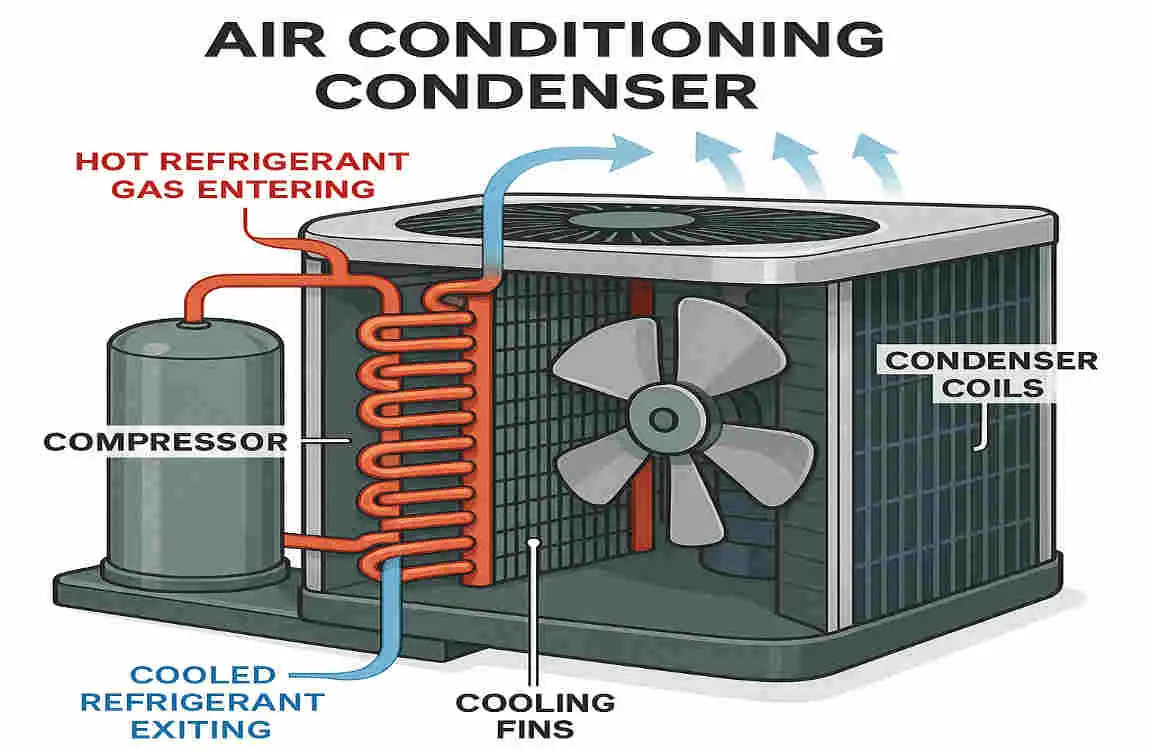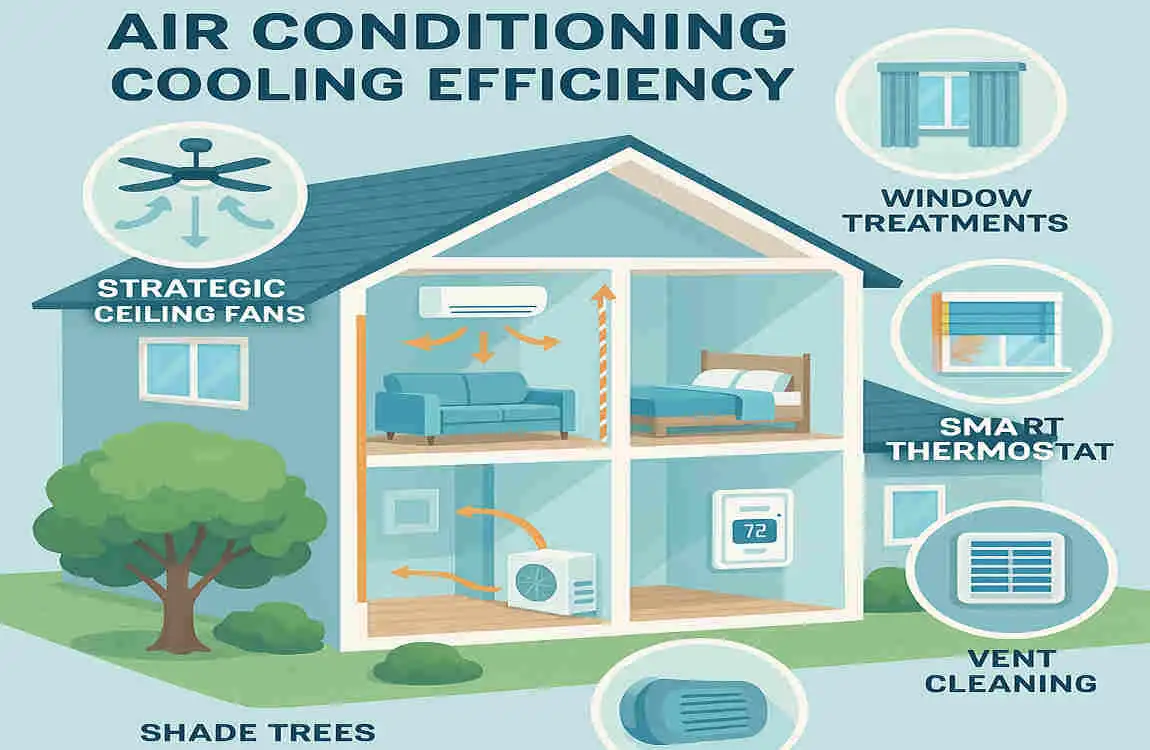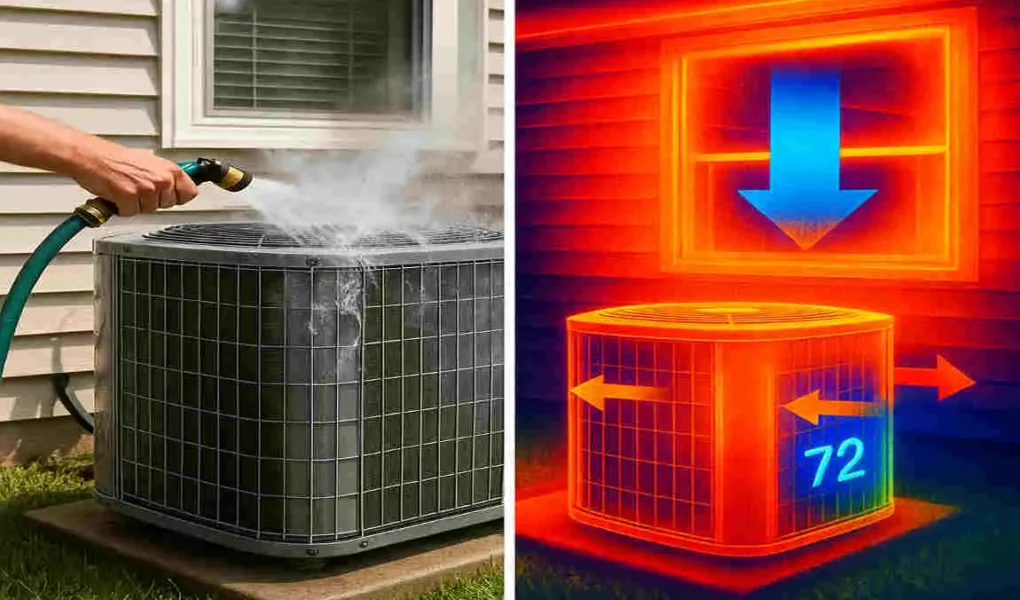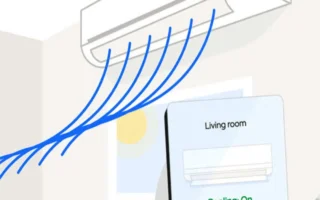Air conditioning isn’t just a luxury—it’s a lifesaver in hot weather. It keeps your home comfortable, protects your health from heat stress, and even preserves your furniture and decor by controlling humidity. But what if your AC seems sluggish? Some folks swear by a simple DIY method: grabbing a garden hose and giving the outdoor condenser unit a good spray.
This trick, often referred to as “misting” or “evaporative cooling,” involves spraying water directly onto the condenser’s coils. The theory? It helps the unit shed heat faster, potentially cooling your house more efficiently. But is it a genius hack or a risky move?
Understanding How an AC Condenser Works

Your air conditioner is like a heat-moving machine, and the condenser is its outdoor powerhouse. Think of it as the exhaust system for all that hot air your AC pulls from inside your home.
The Role of the Condenser in Your AC System
The condenser is typically located outside, resembling a large metal box with fins and coils. Its job? To release the heat your AC has absorbed from indoors. Refrigerant gas, heated up inside your house, travels to the condenser, where it cools down and returns to a liquid state. This cycle repeats, keeping your rooms chilly.
Without a working condenser, your AC can’t do its thing. It’s essential for the whole system. Have you ever noticed your outdoor unit humming away on a hot day? That’s the condenser expelling heat, allowing you to stay cool.
How Heat Gets Expelled from Your House
Here’s the magic: Heat exchange. The condenser coils are designed to let hot refrigerant release its warmth into the air. Fans blow over these coils, speeding up the process. It’s like how sweating cools your body—the heat evaporates away.
But if the coils get too hot or dirty, efficiency drops. Your AC works harder, uses more energy, and might not cool as well. This is where ideas like water spraying come into play, but we’ll get to that soon.
The Basic Science Behind Heat Exchange and Cooling Efficiency
Let’s keep it simple: Heat always moves from hot to cold. In your AC, the condenser uses this principle to dump indoor heat outdoors. Efficiency depends on how quickly that heat transfers. Factors such as air temperature, coil cleanliness, and airflow all play a role.
If the outdoor air is blazing hot, the condenser struggles. That’s why some people think adding water could help by creating evaporation, which cools things faster. Sound intriguing? Let’s see if it holds up.
The Idea Behind Spraying Water on the AC Condenser
So, what’s the buzz about hosing down your AC? It’s not a new fad—people have been doing it for years, especially in super-hot climates.
What Is Spraying Water on the Condenser?
Simply put, you use a hose or sprayer to gently mist water over the condenser’s coils. The water evaporates, theoretically pulling heat away faster. It’s like giving your AC a cool shower on a sweaty day.
You don’t drench it—just a light spray to aid evaporation. Some even set up automatic misters for ongoing help.
Why Some People Believe It Can Help Cool the House
Believers say it mimics nature’s cooling process, similar to how rain cools the air. In theory, wet coils dissipate heat more effectively, enabling your AC to run smoothly and cool your home more quickly. Fans of this method claim lower energy bills and cooler rooms.
Picture this: Your condenser is baking in 100-degree heat. A spray could drop its temperature, easing the load. Does that make sense to you? Many DIYers think so, especially in desert areas.
Historical or Common Practices Related to This Method
This isn’t modern tech—it’s rooted in old-school cooling. Farmers used to spray water on machinery to prevent overheating. In HVAC history, evaporative coolers (like swamp coolers) rely on water for cooling.
Today, it’s popular in places like Arizona and Texas, where heatwaves push ACs to their limit. Online forums are full of stories from homeowners trying it during peak summer. But is it effective? Let’s dig into the science.
Does Spraying the AC Condenser with Water Help Cool the House?
Alright, the million-dollar question: Does spraying the AC condenser with water help cool the house? The answer isn’t a straight yes or no—it’s “sometimes, under the right conditions.” Let’s break it down scientifically.
Scientific Explanation of Potential Heat Absorption and Cooling Effects
Water evaporation absorbs heat—that’s basic physics. When you spray the coils, water turns to vapour, drawing heat from the metal. This can lower the condenser’s temperature by 10-20 degrees, helping the refrigerant cool faster.
In lab tests, this boosts efficiency by up to 20% in extreme heat. Your AC compresses less, runs quieter, and pushes cooler air into your home. Pretty cool. But it’s not magic—it depends on your setup.
Situations Where Spraying Water Might Improve AC Efficiency
It shines in dry, hot weather. When humidity is low, evaporation works most effectively. For older units struggling in heatwaves, a spray can provide temporary relief, cooling your house more quickly.
Imagine a 95-degree day with your AC lagging. A quick mist might drop house indoor temps faster. Homeowners in arid regions report noticeable improvements. Could this work for your home? Think about your local climate.
Limitations and Conditions That Affect Results
Here’s the catch: In humid areas, evaporation slows, making spraying less effective. Overdo it, and you risk issues we’ll cover later. It won’t address underlying problems, such as dirty filters or low refrigerant levels.
Studies show that gains are short-lived—perhaps only 30 minutes before the coils heat up again. So, while it might help cool your house temporarily, it’s not a long-term fix. Weigh your situation carefully.
Benefits of Spraying Water on the AC Condenser
If done correctly, this method has its advantages. Let’s explore how it can make your home more comfortable and efficient—perfect for real estate pros like me, who know that a cool house sells faster. (Head to homeimprovementcast.co.uk for decor tips that pair well with great AC!)
Possible Improvement in Heat Dissipation
Water helps coils shed heat quickly. Evaporation creates a cooling effect, like a built-in chiller. Your AC unit expels heat more efficiently, resulting in faster and more effective indoor cooling.
This means your living room feels refreshing sooner. Who doesn’t love that on a hot afternoon?
Lower Compressor Workload Leading to Energy Savings
When the condenser cools more quickly, the compressor doesn’t have to strain as much. It cycles off sooner, saving electricity. Some users see 5-15% drops in energy bills during heat peaks.
You save money, and your AC lasts longer. It’s a win for your wallet and the planet.
Prevention of Dust and Dirt Buildup on Condenser Coils
A gentle spray washes away grime. Clean coils work more efficiently, maintaining optimal performance. It’s like giving your AC a spa day—less dust means better airflow and cooling.
Regular light spraying could keep things tidy between professional cleanings. Sound like a smart habit?
Here’s a quick bulleted list of key benefits to remember:
- Faster heat release: Coils cool more quickly through evaporation.
- Energy perks: Reduced compressor effort lowers bills.
- Cleanliness boost: Washes off debris for ongoing efficiency.
- Temporary relief: Ideal for extreme heat days.
Potential Risks and Drawbacks
Before you grab that hose, let’s talk downsides. Not everything’s rosy—spraying can backfire if you’re not careful.
Risk of Water Damage or Electrical Hazards
Water and electricity? Bad mix. If water seeps into the wiring or the fan motor, it could cause a short circuit in the unit. Shocks or fires are real dangers.
Always turn off the AC first. Don’t risk it—safety comes before savings.
Mould Growth and Corrosion Issues
Excess moisture invites mould and rust. Coils can corrode over time, weakening the system. In damp climates, this worsens quickly.
Mould spores could even spread indoors, affecting air quality. Yikes—nobody wants that in their home decor setup!
Impact on Warranty and AC System Lifespan
Many warranties are void if you tamper with the unit. Spraying might be considered improper maintenance, resulting in repair bills.
It could shorten lifespan by promoting wear and tear. Think twice—repairs cost more than energy savings.
When Spraying Water Might Do More Harm Than Good
In high humidity or if your unit’s already dirty, spraying compacts grime into a mud-like substance. During rain or pollen season, it’s unnecessary. If your AC is new or efficient, you might not need it.
Ask yourself: Is the risk worth the reward for your setup?
Alternative Ways to Improve AC Cooling Efficiency

Spraying isn’t the only game in town. Let’s look at better, safer ways to keep your house cool and your decor looking fresh.
Regular Maintenance and Cleaning of the AC System
Change filters monthly and house clean coils yearly. This maintains intense airflow and high efficiency.
A clean system cools better without gimmicks. You can do some of it yourself, but professionals handle it best.
Using Shading or Covers to Reduce Heat Load on the Condenser
Plant bushes or install shades around the unit. This blocks direct sun, keeping it cooler naturally.
It’s eco-friendly and boosts curb appeal—great for home improvement fans!
Upgrading to More Energy-Efficient Units
Consider a modern AC with higher SEER ratings. They use less energy and cool smarter.
The upfront cost pays off in savings. Your home stays comfy, enhancing its value.
Professional Tune-Ups and Inspections
Schedule annual check-ups. Techs spot issues early, ensuring peak performance.
It’s like a health check for your AC—prevents breakdowns and saves money.
For a quick comparison, here’s a table of alternatives vs. spraying:
Method Pros Cons Cost Estimate
Regular Maintenance Boosts efficiency long-term. Requires time/effort $100-200/year.
Shading/Covers Natural, low-cost cooling Installation needed $50-300
Upgrading Unit Major energy savings High initial investment $3,000+
Professional Tune-Ups Expert fixes, peace of mind. Annual fee $150-300
Spraying Water Quick, cheap temporary help Risks damage, short-term Minimal
See how spraying stacks up? Alternatives often win for sustainability.
Expert Opinions and HVAC Professional Recommendations
What do the pros say? I’ve consulted with HVAC experts, and here’s the latest information.
Summary of What HVAC Professionals Say About Spraying Condensers
Most agree it’s okay in moderation for hot, dry areas. But they warn against over-relying on it. “It’s a band-aid, not a cure,” says one tech I know.
Organisations like ASHRAE note potential efficiency gains but also stress the associated risks.
Best Practices If You Decide to Spray Water
Use low-pressure water, avoid electrical components, and perform the task during off-peak hours. Experts recommend once or twice on very hot days.
Always consult your manual first.
Myths Versus Facts
Myth: It always saves energy. Fact: Only in specific conditions.
Myth: It’s harmless. Fact: Can void warranties. Get the real story before trying.
How to Safely Spray Your AC Condenser (If Recommended)
If experts green-light it for your situation, here’s how to do it right. Follow these steps carefully.
Step-by-Step Guide on Safely Spraying Water
- Turn off the AC at the thermostat and breaker.
- Gently rinse the coils from top to bottom with a hose (using low pressure).
- Let it dry thoroughly before restarting.
- Check for issues like leaks afterwards.
Tools and Timing for Spraying
Use a garden hose with a spray nozzle. Best time? Early in the morning or late at night, when it’s cooler. Frequency: Only during heat waves, not daily.
Precautions to Avoid Damage or Safety Hazards
Wear gloves, keep children and pets away, and never spray in the rain. If unsure, call a pro.




